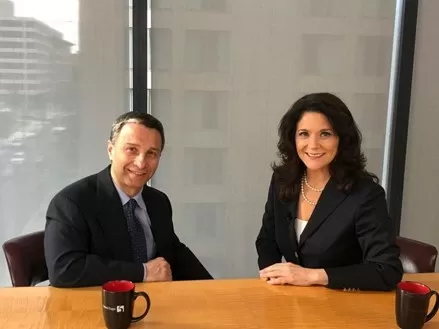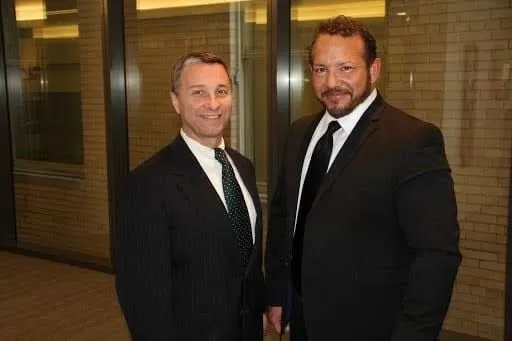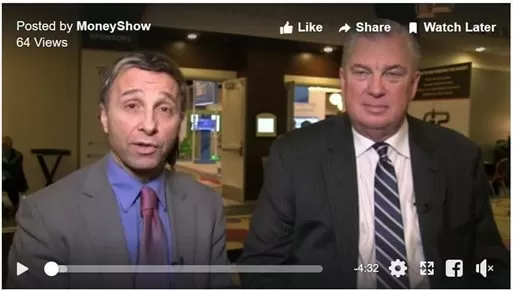TikTok Pushes Public Relations After Gaining Judicial Reprieve
TikTok is pushing public relations efforts about enhancing its security in the wake of winning a temporary judicial reprieve stemming from its lawsuit against the Trump administration.
Judge Carl Nichols of the U.S. District Court in Washington, D.C., granted a preliminary injunction last month to delay a proposed federal government ban on TikTok to give the company’s owner ByteDance Ltd., of Beijing, China, more time to obtain approval from U.S. and Chinese authorities for a proposed new partnership. The pending deal would include Oracle (ORCL), of Redwood Shores, California, and Walmart (WMT), of Bentonville, Arkansas, with each acquiring significant investment stakes in TikTok.
The delay lets Americans continue using the popular video-sharing TikTok application while the court considers whether the service poses a risk to U.S. national security, as the Trump administration claims due to the risk the company may be forced by the Chinese government to share the private data of its estimated 100 million users in the United States. President Donald Trump signed two executive orders in early August aimed at eliminating the security risk by either shutting down TikTok’s U.S. operations or having the business sold to American owners.
TikTok Pushes Public Relations Via HackerOne Partnership to Enhance Security
TikTok recently announced that its vulnerability disclosure policy would include a global “public bug bounty program” through a partnership with HackerOne, which is used by the U.S. Department of Defense and General Motors (NYSE:GM). The partnership is designed to help TikTok gain insight from the world’s top security researchers, academic scholars and independent experts to better uncover potential threats and enhance its security defenses.
The program encourages security researchers to analyze TikTok’s platform and to submit their reports about how the company can upgrade its cyber defenses. TikTok’s new partnership with HackerOne introduced a vulnerability disclosure and bug bounty platform.
Disclosure of the plan coincides with the U.S. Cybersecurity and Infrastructure Security Agency (CISA) designating October as National Cybersecurity Awareness Month. CISA is the U.S. government’s risk advisor and works with partners to defend against cyber threats and to collaborate in building increasingly secure and resilient infrastructure.
TikTok Pushes Public Relations in Videos to Help Users Choose Strong Passwords
TikTok also recently launched a series of videos showing its user community how to create strong passwords. The videos feature TikTok employees, including members of its Global Security Team, instructing users on how to use a password manager to better secure their accounts. The company plans to roll out public service announcements (PSAs) throughout the rest of 2020 that can be viewed at https://www.tiktok.com/@tiktoktips.
In addition, TikTok officials said it is growing its team of U.S.-based security experts to find and to prevent potential threats. By using “cutting-edge technology and multi-layered defenses,” TikTok’s security team members announced they are trying to make it harder for malicious hackers to infiltrate its systems.
“In fact, we actively encourage researchers to look for bugs and report them to us so that we can fix them before a bad actor can exploit them,” according to a TikTok statement.
TikTok Pushes Public Relations Amid Promises to Upgrade Security
TikTok added that cyber security is “constantly evolving” and its team is committed to meeting the challenge head-on to provide a safe and secure app for the TikTok community with investments in technology, people and partnerships. TikTok further announced it plans to raise the bar on transparency through regular Transparency Reports and its Trust & Accountability Centers that show security experts how the company’s app works and how it tries to safeguard its fast-growing user community.
However, the Chinese Communist Party (CCP) has demonstrated the “means and motives” to use apps such as TikTok and WeChat to threaten the national security, foreign policy and the economy of the United States, William Ross, the U.S. Secretary of Commerce, said last month. Under his leadership, the Commerce Department would enact prohibitions on TikTok to protect users in the United States by blocking access to both applications and significantly reducing their functionality.
“President Trump will do everything in his power to guarantee our national security and protect Americans from the threats of the Chinese Communist Party,” Ross said in a statement. “At the President’s direction, we have taken significant action to combat China’s malicious collection of American citizens’ personal data, while promoting our national values, democratic rules-based norms and aggressive enforcement of U.S. laws and regulations.”
Six Republican Senators Seek More Safeguards Than TikTok’s Public Relations Push
Six Republican senators, Marco Rubio, Roger Wicker, Dan Sullivan, Thom Tillis, Rick Scott and John Cornyn, sent a letter to President Trump on Sept. 16 calling for him to reject any partnership that will retain links to ByteDance or other Chinese-controlled entities due to national security risks.
A partial sale, or partnership deal, is insufficient in achieving the goals of protecting Americans and U.S. interests from the serious risks detailed in [an Aug. 14] Executive order,” the senators wrote. “Any deal between an American company and ByteDance must ensure that TikTok’s U.S. operations, data and algorithms are entirely outside the control of ByteDance or any Chinese-state directed actors, including any entity that can be compelled by Chinese law to turn over or access U.S. consumer data.
TikTok’s Proposed Partnership with Oracle, Walmart and ByteDance
“The deal is Oracle’s attempt to become a major player in providing cloud computing services,” said Bob Carlson, chairman of the Board of Trustees of Virginia’s Fairfax County Employees’ Retirement System with more than $4 billion in assets and head of the Retirement Watch investment newsletter. “Oracle missed the first phase of cloud computing growth. It preferred to continue its successful practice of selling database software to clients and having them buy the hardware to support it.
“Many businesses now want a lot of their operations to be on the cloud, and Oracle hasn’t established itself as a [top] provider of cloud services. If it acquires TikTok, Oracle plans to move TikTok’s operations onto Oracle’s cloud servers. If Oracle is able to provide the services for this high-volume client, that would give it the credibility to compete in that sector against Amazon.com, Google and Microsoft.”

(Pension fund Chairman Bob Carlson answers questions from Paul Dykewicz in an interview before social distancing became the norm after the outbreak of COVID-19.)
Oracle ideally also would gain access to TikTok’s algorithms and gather some insight into how to improve its software offerings, Carlson continued. Since key details of the proposal have not been publicly disclosed, it is unclear what control of the data and algorithms Oracle may obtain, he added.
Money Manager Critiques TikTok’s Plans with Oracle, Walmart and ByteDance
“Big Tech’s size was a comfort in the early pandemic and now it’s dead weight,” said Hilary Kramer, host of a national radio program called “Millionaire Maker” and head of the GameChangers and Value Authority advisory services. “Microsoft, in particular, looks like it’s going to struggle to regain its recent peak, which is going to be a challenge for the entire sector when you’re dealing with a $1 trillion company. The TikTok deal would have given it the push it needed.”

(Columnist and author Paul Dykewicz talks to money manager Hilary Kramer, whose premium advisory services include 2-Day Trader, Turbo Trader, High Octane Trader and Inner Circle.)
Jim Woods, editor of Successful Investing and Intelligence Report investment newsletters, as well as the Bullseye Stock Trader advisory service, said Oracle Chairman Larry Ellison’s support for the re-election of President Trump may help lead to an agreement with the administration.
“Aside from politics, the deal is likely to be a win-win for both Oracle and TikTok, as it gives the former a hot new app and it gives the latter the tech pedigree in needs to operate in the United States,” Woods said.

(Paul Dykewicz interviews Jim Woods before the COVID-19 crisis.)
Hope Remains for Partnership Between TikTok, Oracle, Walmart and ByteDance
“From a strategic standpoint, Oracle getting into the social media business makes sense in that their cloud division stands to gain from the deal as a minority partner,” said Bryan Perry, who leads the Cash Machine investment newsletter and the Premium Income, Quick Income Trader, Breakout Profits Alert and Hi-Tech Trader advisory services. “It stands to reason TikTok will provide a growth driver for Oracle at a time when the company needs to generate some new channels of growth.
“Oracle is a low-profile enterprise computing business that gets little if any headlines that move its stock. TikTok is a high-profile business that will keep the key word algorithms busy paying lots of attention to all things TikTok, and hence some things Oracle.”
The proposed partnership is good publicity for Oracle, even if TikTok is a “long way from monetizing” its business model through sponsored-advertising expenditures, Perry said. The announcement of the proposal with a trendy social media video service should Oracle’s reputation, he added.

(Paul Dykewicz interviews Bryan Perry at a MoneyShow conference.)
TikTok may be seeking to buy time with its public relations campaign to see if former Vice President Joe Biden defeats President Trump in the Nov. 3 election. If President Trump loses, TikTok and its Chinese owner may seek to avoid giving up control of the app’s ownership and the private data of its users in the United States, despite Trump administration concerns that China’s government will use the information for its own purposes.
ORCL shares were trading at $56.74 per share on Monday morning, down $3.16 (-5.28%). Year-to-date, ORCL has gained 8.98%, versus a 7.12% rise in the benchmark S&P 500 index during the same period.
Author: Paul Dykewicz